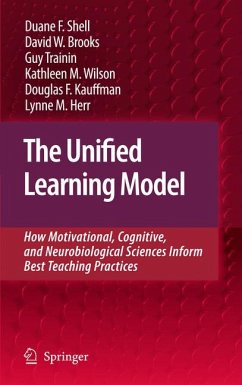
International Research Handbook on Values Education and Student Wellbeing (eBook, PDF)
Versandkostenfrei!
Sofort per Download lieferbar
232,95 €
inkl. MwSt.
Weitere Ausgaben:

PAYBACK Punkte
116 °P sammeln!
Informed by the most up-to-date research from around the world, as well as examples of good practice, this handbook analyzes values education in the context of a range of school-based measures associated with student wellbeing. These include social, emotional, moral and spiritual growth - elements that seem to be present where intellectual advancement and academic achievement are being maximized. This text comes as 'values education' widens in scope from being concerned with morality, ethics, civics and citizenship to a broader definition synonymous with a holistic approach to education in gen...
Informed by the most up-to-date research from around the world, as well as examples of good practice, this handbook analyzes values education in the context of a range of school-based measures associated with student wellbeing. These include social, emotional, moral and spiritual growth - elements that seem to be present where intellectual advancement and academic achievement are being maximized. This text comes as 'values education' widens in scope from being concerned with morality, ethics, civics and citizenship to a broader definition synonymous with a holistic approach to education in general. This expanded purview is frequently described as pedagogy relating to 'values' and 'wellbeing'.
This contemporary understanding of values education, or values and wellbeing pedagogy, fits well with recent neuroscience research. This has shown that notions of cognition, or intellect, are far more intertwined with social and emotional growth than earlier educational paradigms have allowed for. In other words, the best laid plans about the technical aspects of pedagogy are bound to fail unless the growth of the whole person - social, emotional, moral, spiritual and intellectual, is the pedagogical target. Teachers and educationalists will find that this handbook provides evidence, culled from both research and practice, of the beneficial effects of such a 'values and wellbeing' pedagogy.
This contemporary understanding of values education, or values and wellbeing pedagogy, fits well with recent neuroscience research. This has shown that notions of cognition, or intellect, are far more intertwined with social and emotional growth than earlier educational paradigms have allowed for. In other words, the best laid plans about the technical aspects of pedagogy are bound to fail unless the growth of the whole person - social, emotional, moral, spiritual and intellectual, is the pedagogical target. Teachers and educationalists will find that this handbook provides evidence, culled from both research and practice, of the beneficial effects of such a 'values and wellbeing' pedagogy.
Dieser Download kann aus rechtlichen Gründen nur mit Rechnungsadresse in A, B, BG, CY, CZ, D, DK, EW, E, FIN, F, GR, HR, H, IRL, I, LT, L, LR, M, NL, PL, P, R, S, SLO, SK ausgeliefert werden.













